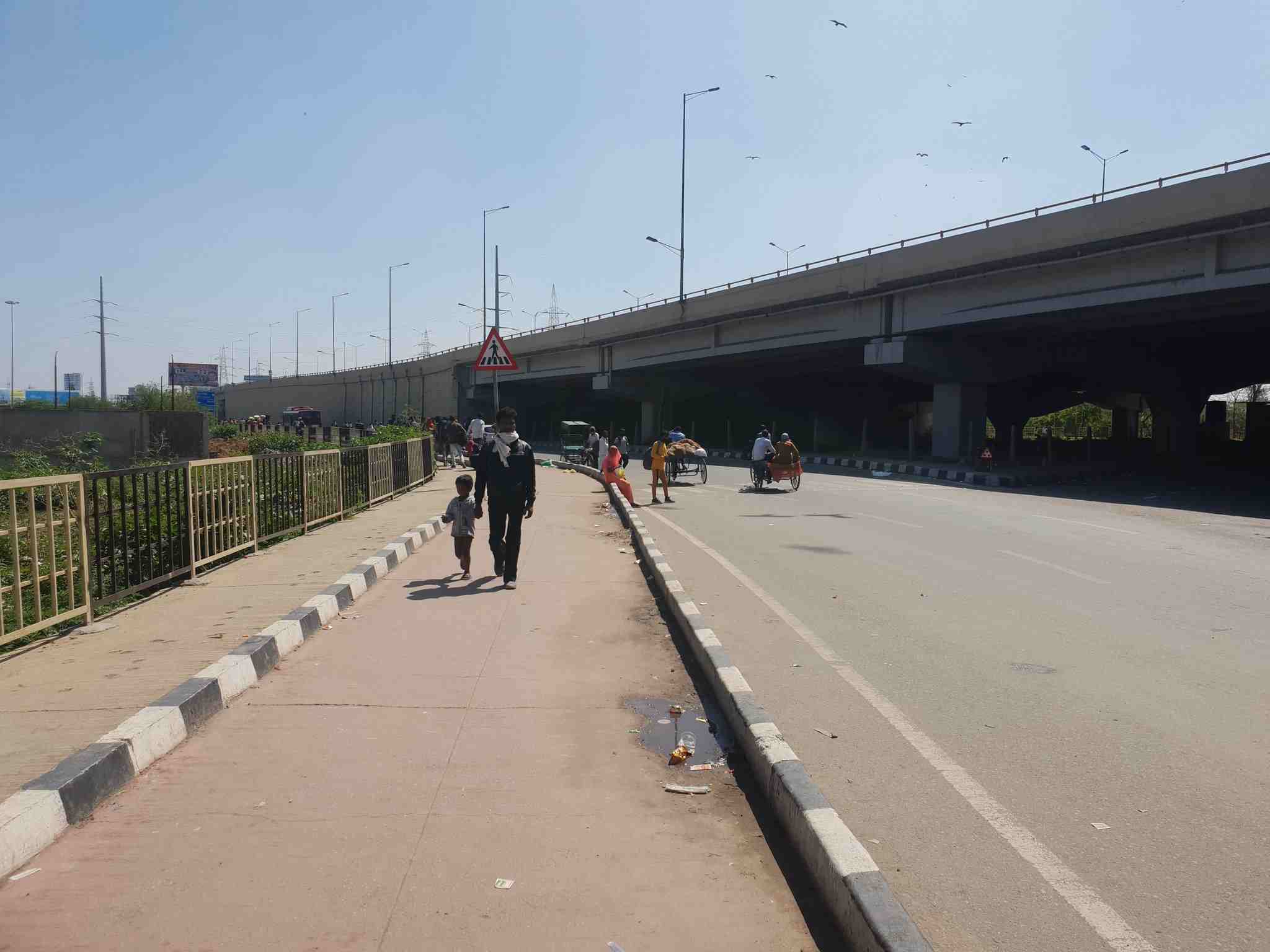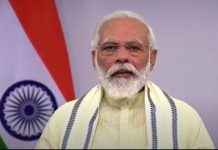Whether the government had any plan or framework for full-fledged lockdown in times of COVID-19 is beyond discussion. Just look at the series of events that unfolded with the intrusion of coronavirus in our country. After the infections of COVID-19 seemed to be accelerating, the apparently active central government declared a nationwide complete lockdown with a 4-hour prior notice.
Being a country full of misinformation and untruth where people can’t even trust mainstream national media to tell you correct things directly, people went on panic buying. There were half a kilometre long queues outside general stores to buy essentials. A section of people with money in hand started stocking goods to avoid coming out during lockdown to abide by rules.
These same people then participated in intermittent national events curated by our honourable Prime minister. These were the balconied middle classes. At a time when they were switching off lights and lighting candles, no one bothered to check how the people in the lowest strata of the economy are coping with the gloom of lockdown. At some places in the national capital itself firecrackers were burnt, as if they were celebrating something. This is our ability to romanticise a pandemic.
The hardest hit by the lockdown was a big population of migrant labourers and daily wage earners in developed cities like Delhi, Mumbai, Surat and others. The lockdown instilled insecurity and the fear of loss of livelihood in them. Anyhow, they survived the first lockdown for their country. The management of the government proved to fail in providing food to those living in small tenements and slums. Many NGOs stepped in to help. But the announcement of extension of lockdown made them anxious and now they wanted to go home. Ideally, the government knowing that the lockdown was going to be extended should have arranged for their transportation beforehand. Our vast railways network could be used and migrant labourers willing to go home could have been sent back to their natives in phases to avoid congestion. The government chose to look a different way and not pay heed to the plight of the poor and migrants. Eventually, as our Prime minister beautifully puts it “Human nature to go home during crisis”, they resorted to walk on feet towards their home states.
Not often does the world get to witness such a backbreaking and life-threatening disaster like COVID-19. But these are also the times when people get to know how thoughtful the government is about them. Unfortunately, this period will always be remembered for the COVID crisis as well as for the apathy shown by the current regime towards the poor who are actually the makers of India and will be once again called by the same government to work on the iconic Central Vista project worth a whopping 20,000 crores. The interesting thing is that the government has not halted this project even at these tough times. Our Prime minister is really indomitable.
In such critical times, the citizenry has shown full solidarity with the government, for which the government should also have reciprocated and helped the labourers and the poor.
It can’t be that the ruling establishment wouldn’t be knowing about the sufferings of the migrant class.This brazen insensitivity of the Centre and the state governments during these difficult times of is truly disheartening and disturbing. The deaths of innocent children succumbing to Encephalitis in Bihar or the plight of starving and exhausted migrant workers walking for hundreds of kilometres on foot, has failed to ignite the sensibilities of an indifferent political culture.
Dilution of Labour Reforms
After being hit by the COVID-19 crisis, forced to flee back to their native villages, the migrant class is now compelled to work without any legal protection in factories and industries. I agree that the convoluted labour laws require reforms but a wholesale suspension of laws aimed at protecting labourers and employees can’t be called ‘reform’. Reform is improvement from the status quo. “Gutting labour protection isn’t reform. Designing protection that can protect core interests of workers, respect their bargaining power and at the same time rescue distortion in capital allocation is reform.”
90% of the total workforce in India is employed in informal sector and this move will further informalise the workforce. With informalisation increases vulnerability and this will lead to a steep rise in casualization of workforce which is against what the government has always been trying to do: to formalise the workforce. It’s clear that the revival of business is a key objective to be achieved but what the states like Uttar Pradesh, Gujarat, Madhya Pradesh and several others have done is amoral and authoritarianism masquerading as reforms. The sacrifice of labourers and workers continues. This move will confiscate whatever bargaining power they have in hand. Government through the “reforms” aims at providing employment to returned labourers. So, why not encourage industries to increase shifts to distribute employment than increasing work-hour if job creation is the intention. The government at central and state level should partner with enterprises and share the wage burden like Canada and most other governments across the world to reduce layoff and pay cuts. Sadly, the attitude of the governing class towards the misery of migrants’ remains of sheer apathy and contempt. Why else would a government relieve factories of even elementary duties such as providing drinking water, cleanliness, ventilation, protective equipment and other basic facilities? This will prove to be dangerous given the safety COVID crisis demands as can be seen from the indefensible way in which the government failed to anticipate the problem migrant workers would face.I don’t think this will fit PM Modi’s drive to make India “Aatmanirbhar” (self-dependent), if the labourers and employees- the building blocks of India are not “Aatmanirbhar” and left at the clemency of employers. Labour is a concurrent subject and central government’s laws are more significant in this respect, one can hope that the Centre wouldn’t readily agree to wholesale exemptions from legal safeguards and protections and be considerate of workers.
Himanshu Kumar is a Young Scholar deeply engaged with issues of social justice and human rights.














